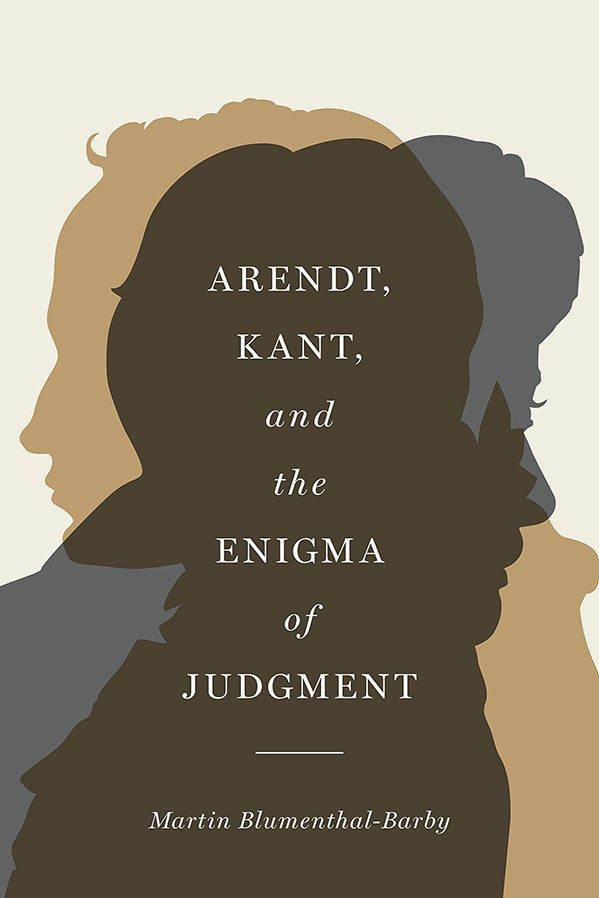
In his latest monograph Arendt, Kant, and the Enigma of Judgment (Northwestern University Press, October 2022), Martin Blumenthal-Barby offers a "nuanced extrapolation of Hannah Arendt’s theory of judgment through her highly provocative reading of Immanuel Kant." For more, click here.
As Martin Blumenthal-Barby eloquently puts it: "As contemporary life is increasingly permeated by artificial intelligence--whether in marketing or finance, in healthcare or the criminal justice system--algorithms are widely seen to be replacing human judgment. The idea that authentic judgment, e.g., the ability to distinguish right from wrong, beautiful from ugly, is hardly commensurable with such formal-logical processes lies at the center of Hannah Arendt's late work. Arendt probes this ability to judge in her posthumously published Lectures on Kant's Political Philosophy, which present an idiosyncratic reading of Kant's Critique of Judgment. By taking Arendt's highly provocative reading of Kant as a point of departure and putting it into dialogue with her other writings, my book extrapolates Arendt's own theory of judgment. lt suggests that rather than presenting us with a fixed account, Arendt's penchant for drawing and redrawing conceptual distinctions amounts to no less than an enactment of judgment that challenges and complicates what she says at every turn. In so doing, Arendt, in a thoroughly Kantian fashion, establishes judgment as a performative category that can never be taught but only demonstrated."
The book has already received some praise:
“At a time in our intellectual and political history in which distinguishing between truth and lie, right and wrong, good and evil seems more pressing than ever, reflecting on how we judge is essential for our institutions. With this truly exquisite book, Martin Blumenthal-Barby shows how Arendt’s masterful, if elusive, theory of judgment can serve to reimagine politics in our time.” —Amir Eshel, author of Poetic Thinking Today: An Essay (For more, click here.)

